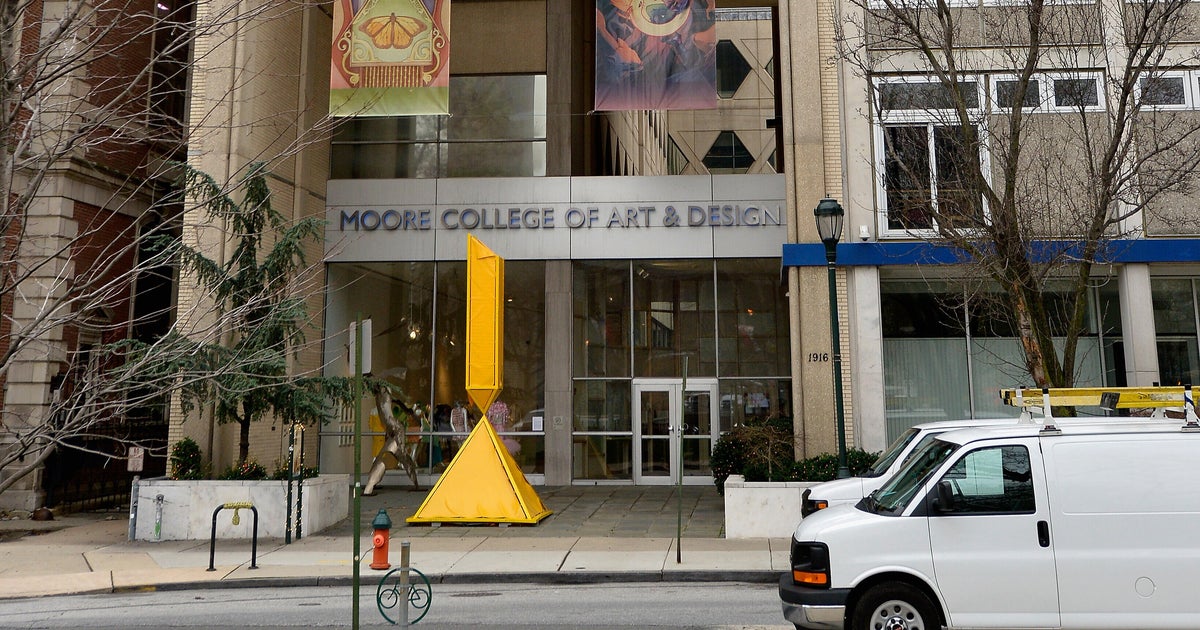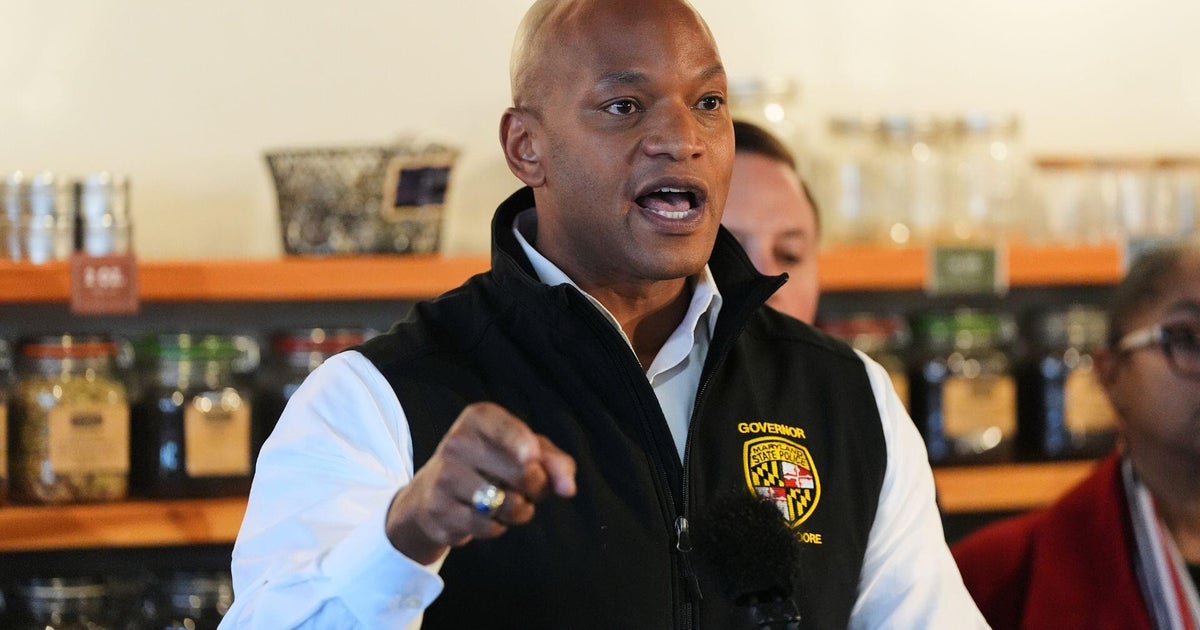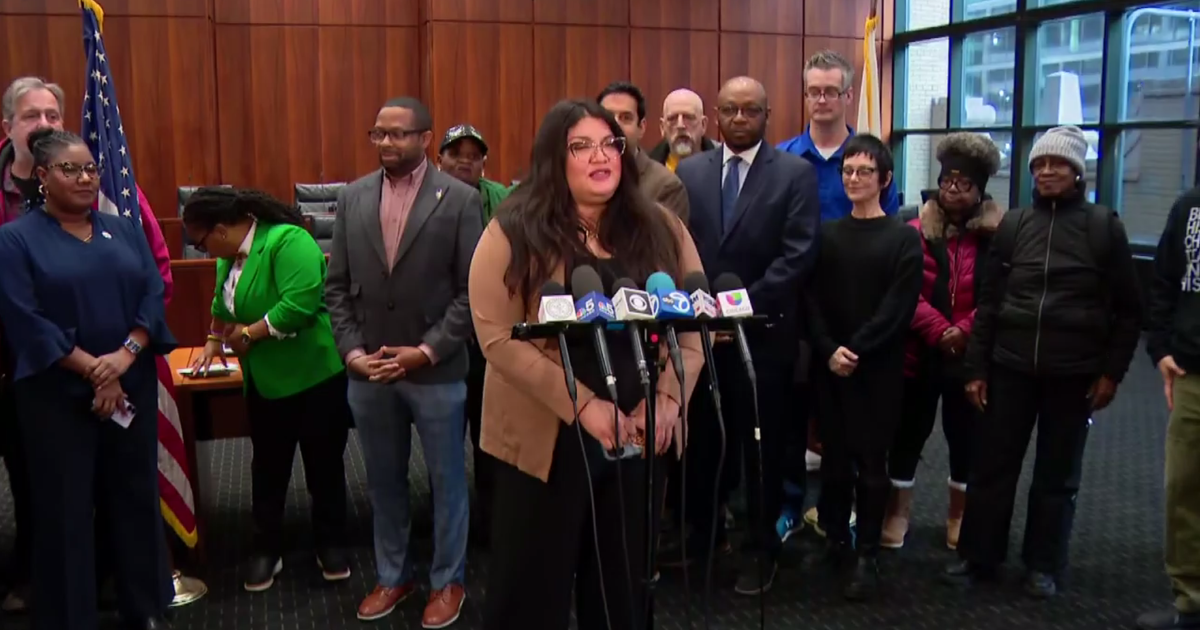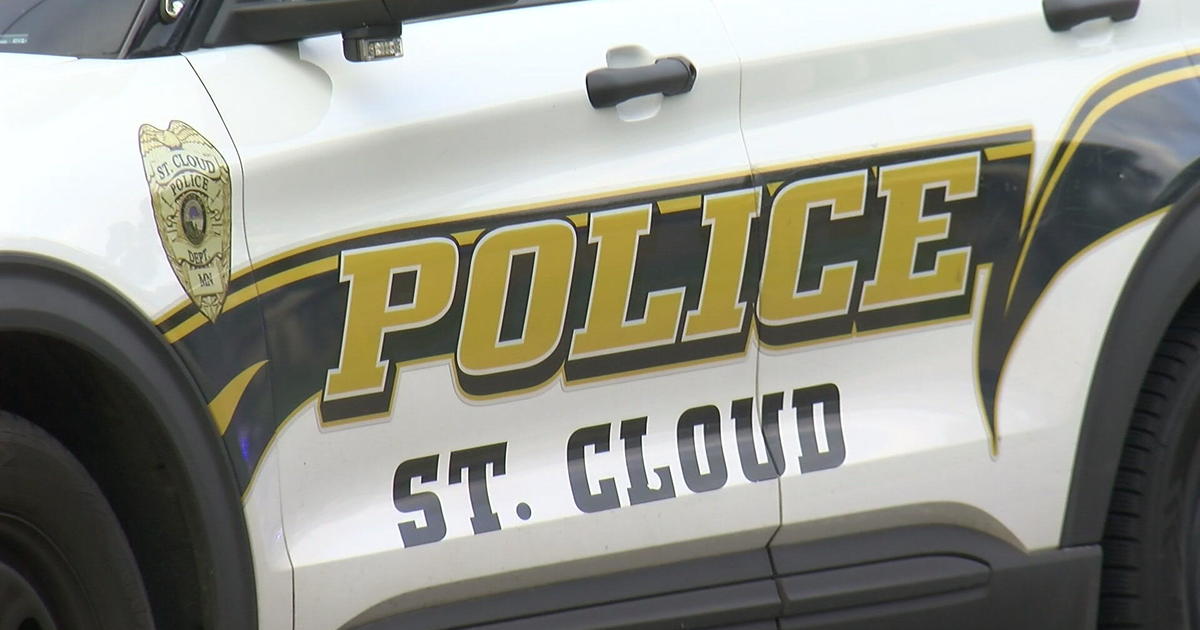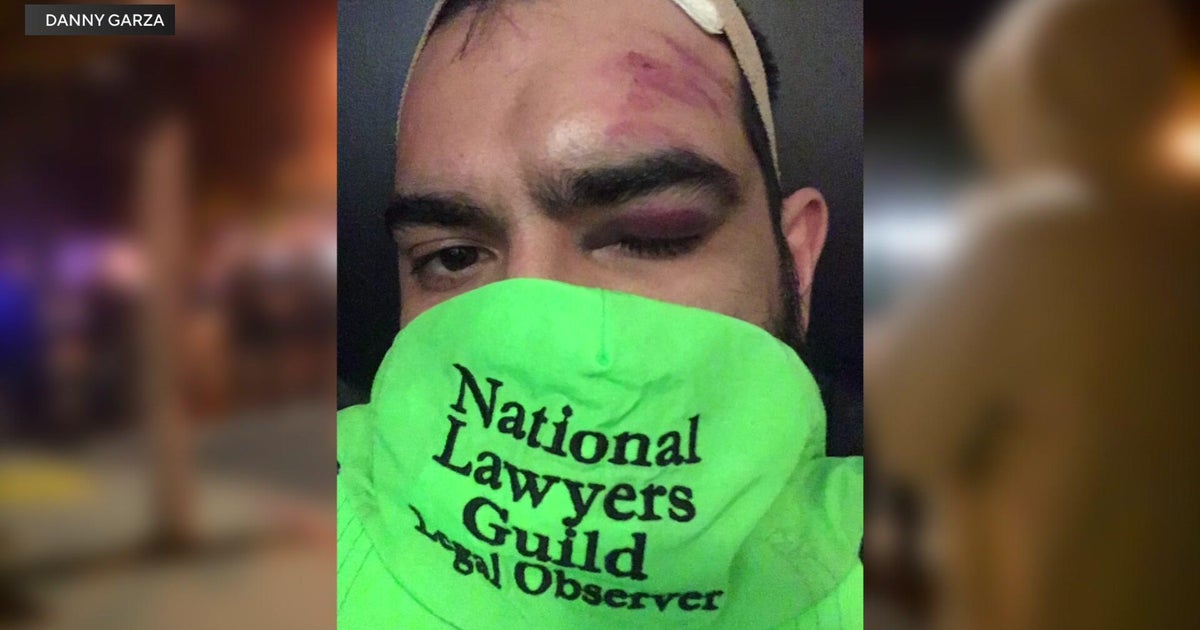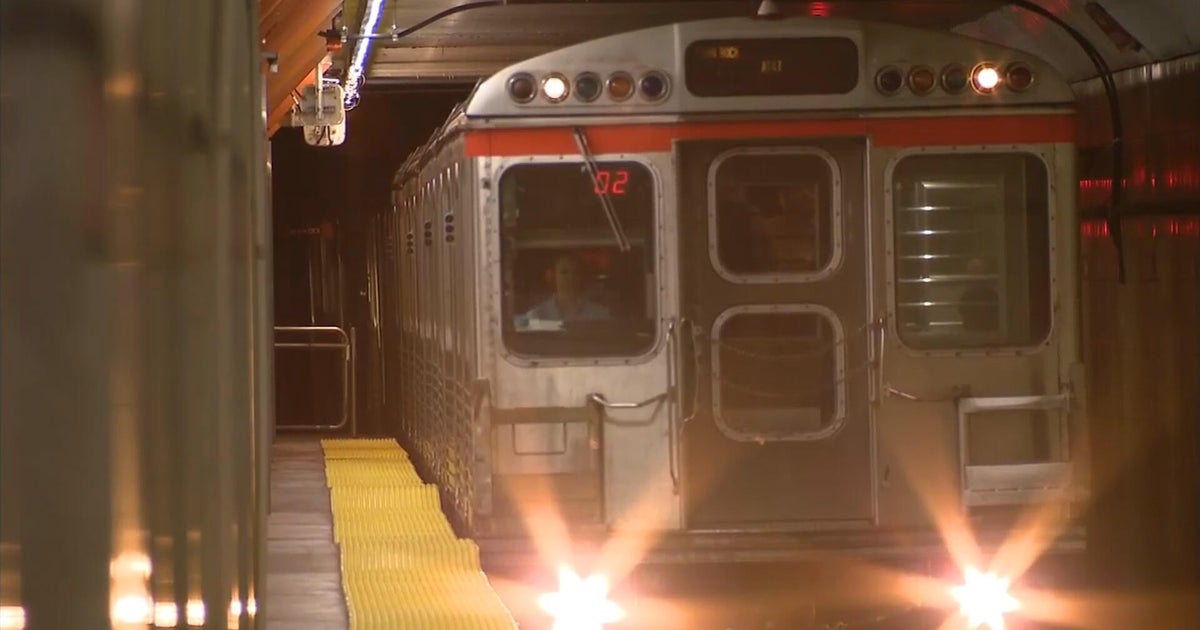Michael Moore: 2020 Election Guide
Welcome to WCCO.com's 2020 political guide!
We reached out to all Minnesota candidates running for U.S Senate and U.S Congress this fall. Candidates were asked to provide a two-minute video discussing their platform as well as answer a set of our viewers' questions.
Above is the video and below are the answers Michael Moore provided. This is not a paid advertisement nor does WCCO endorse any candidate.
Responses from Michael Moore, Legal Marijuana Now candidate for the 5th District:
Do you believe racial disparities exist in Minnesota and across the country? If so, what policy changes would you propose to combat this?
To deny the existence of racial disparities whether specifically in Minnesota or generally across the country, is to deny reality. All statistics, data, and evidence both scientific and anecdotal show that the remnants of this country's race-based social structure, upon which it was fundamentally constructed, are still prevailing and influencing our culture in many ways today. Whether we look at the educational system, our economy, home ownership, the criminal justice system, inclusion in our political system, social advancement, media, advertising, and so many other aspects of our American society. No one can argue with the absolute facts that poor neighborhoods are targeted with a higher police presence, or are more likely to have their neighborhoods disrupted by freeway construction, or new govt. housing projects. So, before we can begin discussing solutions, I want to make it clear that I don't support the idea of being allowed to choose whether or not we "believe" in these factual circumstances.
People need to understand that the policy changes for these multiple generation and administration spanning problems have already been conceived and proposed. Unfortunately, they either have not been implemented or otherwise not properly financed or supported. Despite being responsible for the problem, the federal govt. has essentially abdicated their responsibility regarding social reforms to NGOs, religious organizations and not-for-profit agencies. In America, non-profits, foundations and charitable institutions have long been established and renowned for their focus and effort at ending and changing conditions for the better. This means that I don't need to personally solve ANY of the issues regarding racial disparities within our district, state or country, but rather simply work to provide greater access, funding and platforms for the many experienced and successful entities which already have the detailed solutions. There are organizations specifically devoted to ending racial disparities within banking, housing, property ownership, the education gap, small business entrepreneurship, criminal justice, politics, homelessness, and on and on. Groups so specific that they are committed to just the problem within the military, or just within fortune 500 companies. I understand completely that it would be entirely unwise and even counterproductive for someone like myself, to show up now, after decades of smart and talented people have been sacrificing to plan and promote useful and working strategies that are already in existence, and act like I have some personal plan or program that will accomplish more than they could. It would be much smarter and more effective for me to try and highlight these groups and their efforts, help control the misuse of funds, and increase access and publicity for their hard work. The important work I will do, won't be in generating brand new policies, but rather to derail what has stopped the policy changes for these long standing problems before me. Corruption and the lack of political will.
Do you believe the federal government's handling of the COVID-19 pandemic has been adequate? If not, what could have been done differently? Do you believe there should be a national mask mandate?
Clearly, the response to the COVID-19 crisis has been disastrous. The inability and unwillingness of the federal government to immediately react and respond to this problem effectively has resulted in the unnecessary deaths of hundreds of thousands of our citizens, the collapse of our economy and a shaken faith in the confidence of our govt. to honestly handle emergencies and problems.
To understand the depth of the failures in responding to the COVID-19 pandemic we have to go back to the very beginning. We can't just start at the actual response in January of 2020, we have to retrace our steps to contextualize what America did and did not do that has led us to this outcome. From the moment he took office, Donald Trump downplayed the priority of pandemic preparation. The 69-page "Playbook for Early Response to High-Consequence Emerging Infectious Disease Threats and Biological Incidents", that was left to him by the previous administration was either ignored or thrown away. In 2018, the White House administration disbanded the global health security pandemic response team. The bottomline is that the lack of proper preparation for this exact type of problem by the current federal administration made this result inevitable. Critical govt. agencies, such as FEMA, the NSC, the CDC, and every group involved in the emergency preparedness and response have had their experienced leaders replaced with far less competent Trump supporters and loyalists, leaving them unqualified and vulnerable to political and unscientific influences.
So, it's not enough to simply say, "I would have let the CDC lead the response" because the CDC was already essentially disabled when the crisis started. One thing is absolutely true. Had the United States taken a serious and scientifically based effort at responding to this crisis like it was a true national health emergency back in late January and early February, we could have controlled, contained or eliminated the problem, just like so many other countries did. Solving this crisis would have taken an approach that prioritized preparedness, practice and the stockpiling of emergency resources which occur long before the actual problem.
An intelligent, bi-partisan, unbiased and appropriate national mask mandate would absolutely help resolve this crisis and should have been instituted by, and exemplified at the highest levels of govt. It should never have become a political issue, but rather a simple issue of national health and safety. The same way that 100% of the people take off their shoes when passing through airport security, is how people should all react to this cooperative remedy.
What policy changes would you propose to jump-start the economy in the wake of the COVID-19 pandemic? Should the federal government pass an additional stimulus bill? If so, what should it include?
It bears stating that the 1 thing that will most improve the economy will be ending the COVID-19 pandemic. So everything the govt. does should be focused on solving that problem. We have to recognize that anything we do that results in an increase in the problem with COVID-19, means that we're moving backwards. However, directing the DPA (Defense Production Act) to create increased surpluses of critical items would still be helpful. Expanding the PPP (Payroll Protection Program) to include many other elements of business, understanding that without successful businesses, there is no future payroll opportunity. All the loan and grant programs should be expanded, extended and more closely monitored for fraud and waste. Even at this point, we can see that the effects of this situation will be with us for some time, so we should protect and continue these programs through the end of 2021. While there are a lot of band-aids and restorative measures that we can take, nothing will heal us like resolving the pandemic itself. Ultimately, we may yet find that the best way to achieve a more prosperous end result will be if we institute a full and enforced "shelter-in-place" order for 8-12 weeks that includes 100% of the country.
The federal govt. needs to immediately pass another all-inclusive stimulus bill that provides both immediate and long-term relief to the people and businesses affected by this pandemic. After 9/11, the govt. did the best they could to make people as whole as possible. The govt. should take the same approach here. People were killed and lost businesses through no fault of their own. America is a wealthy nation with the means to financially rectify a lot of what has been taken away. We waste and misuse a lot more money than it would take to do something good for people and we should not lose or pass on that opportunity.
The new stimulus bill should include direct payments to all permanent residents as well as supporting payments to individual states and territories, critical infrastructure facilities and essential interests. The USPS, grocery stores, hospitals, clinics, schools, transportation companies, daycare centers, assisted living facilities, nursing homes, prisons, mental health facilities, rehab centers, police and fire depts., govt. housing projects, etc. Utilities and insurance should universally be adjusted. Banks should be required to offer deferred payment options on 100% of the loans, mortgages, vehicle, property, etc. without penalty or interest. Savings should be encouraged and incentivized with special interest rates. Large corporations (insurance, media, utilities, Amazon, Wal-mart, Ebay, Facebook, etc.) who are benefiting from the pandemic should be properly and appropriately taxed and all politicians should take a significant pay cut.
What do you think is the root cause of the civil unrest in our community and across the country?
First of all, America has its roots in civil unrest. It's unfair to brainwash our children throughout their primary education, and then be surprised when they react to perceived injustice with the ideals we instilled within them. Our country's sovereignty rose from revolution against British colonialism. The end of slavery rose from civil war. The attempt to dominate the indigenous people led to the genocide of native Americans. Our sense of racial equality was gained through a violent struggle for civil rights. (To name just a small sample of some disruptive periods in our history…) A natural American reaction to injustice has been, and remains to be, some form of civil disobedience and we should recognize that basic truth.
While it has become more and more divisive and polarizing, politics is not the cause of the unrest itself, but rather another casualty. Today, we have less unbiased leadership in the country and that has allowed people to take sides on situations that should be seen as universal. It has become harder and harder to agree with someone who doesn't share your party's political viewpoints, and this means nearly half the country will automatically discount what any particular politician says. As people sense a threat of change, or if their belief system is challenged, they retreat into groups that share like-minded ideas about the world. So issues like racial inequality and systemic racism, police oppression and abuse of power, unfair housing practices, govt. discrimination, and many other concepts that might normally be universally condemned, devolve into elements of political partisanship. This means that instead of people working cooperatively to end the problems that affect us all, we have to choose sides. Politicians argue instead of resolve, and important problems persist. Leaving the most affected people, with no platform, lobby or real influence, to feel like they have no choice but to take their case to the streets. Put simply, civil unrest comes from the failure of the govt. to effectively and realistically address all the needs of its people.
Do you believe that funding for police departments should change, and if so, how should those funds be redirected? Should the federal government implement national police standards?
I have addressed this issue in significant detail on my website. I would highly encourage interested people to check that out. (usrepmoore.com) I'm happy to give you the brief summary here:
First, we're really only talking about large police depts. A lot of people are surprised to learn that over 50% of the police depts in the United States have 10 of fewer employees. So it's important to understand that when we discuss radical or large scale changes to policing, we're really talking about far fewer than half of all police departments. And yes, absolutely, for these depts, both the funding and the fundamental structures must be significantly reformed and reformatted.
We need a highly trained, community based, unarmed, non-uniformed element of civilian assistance to handle the vast majority of non-criminal calls and complaints. From mental health issues, to crime reporting, to serving warrants, to traffic issues, to paperwork, to general follow-up. The overwhelming majority of police work does require the type of armed response we see employed as standard procedure and required dept. policy from a police officer. These unarmed, community-based, peace officers will always have the option of calling the police if any situation rises to the level of criminality or seems potentially violent. But when citizens fully understand that they cannot be arrested, they have no motivation to resist, escalate or act out. This all but eliminates incidents that lead to issues of police abuse of authority and power, as well as criminal activity by citizens during police interactions.
We need to eliminate the concept of department wide insurance, and require that every individual police officer carry their own personal insurance in case of "malpractice" of their duties. A govt.-based insurance program for cops alleviates the financial burden on the dept. It holds officers accountable for their actions and brings home the concept of individual responsibility and always acting within policy. It incentivizes officers to maintain a clean record and gives citizens an immediate and separate avenue and procedure for recourse.
Crime prevention, community-based programs, diversion and intervention have all proven to be better methods at controlling or decreasing crime and criminal activity. So depts. should always prioritize outreach and minimize concepts like increased militarization. As we stated in the beginning, the larger the police dept. is, the harder and more costly it is to control, so the size of every dept. should be capped to allow for maximum benefit and efficiency. Whether that means, a maximum of 500 officers, 300 officers, 100 officers...whatever it is. So a city like Mpls. might be divided into 2, 3 or more police depts. Separated, but cooperative in much the same way that MPD still works with SPD, and they both still work with the HCSD and they all work with the state patrol. If we understand that smaller works better, then the simple act of making large departments smaller will help.
There is a role for the federal govt. to play in regards to policing, but it's not through a set of national standards. It is in the enforcement of national policy, oversight, funding, and federal cooperation of independent investigations into actions and depts. who are accused of wrongdoing or bad practices. States, and indeed, individual cities are more than capable of setting and enforcing standards that are appropriate for their citizens. This allows local residents to dictate and influence the actual policies that drive their local depts. We need the federal govt. to remain unbiased, unaffiliated and independent of every police dept. so that they can helpfully assist properly funded and structured, local, independent committees and agencies in police oversight, investigation and enforcement.
Do you believe the government should subsidize broadband internet access for rural areas? Should public school districts reimburse families for the cost of distance learning?
Beyond just subsidizing broadband internet for rural areas, I would personally support the govt. monopolizing the internet and making it a public utility. Offering free internet, and low-cost broadband to 100% of the citizenry. I would publicly advocate for people to agree with that idea, but as the representative of the 5th district, it's important to remind people that I would only ever promote the consensus viewpoints and attitudes of my constituents.
While some private schools may be making cost adjustments specifically due to this issue, and I agree that in many cases distance learning may not have been as useful, effective and meaningful as in-person learning has been, there should be no public school reimbursements for any family. This is simple economics. Public schools simply don't have the money. They are significantly and chronically underfunded.
Do you think the current Minnesota gun laws are adequate? If not, what changes would you make?
In Minnesota, the problem with guns and gun crime is not the lack of legislation, but rather the systemic lack of rigorous investigation and then full and effective enforcement. We need a more strict and consistent level of enforcement of every gun crime, both local, state and federal. Prosecutors need to rid themselves of their fear of citizens relying on some perceived second amendment right and establish clear and convincing precedent concerning the enforcement of 100% of the gun laws and the sentencing guidelines that coincide. This includes crimes regarding the sale, registration, illegal ownership, illegal transfer, illegal storage, serial number tampering, brandishing, illegal concealment, public discharge, and many others. 100% of gun crimes need to be prioritized, enforced and prosecuted to the fullest extent of the law. .
If I was going to make any changes regarding Minnesota gun crime laws, it would be to legally prevent any prosecutor from deleting any gun crime as part of any plea bargain deal. In other words, no gun crime could ever be plea bargained away.
Do you support legalizing the recreational use of marijuana?
As the endorsed candidate of the Legal Marijuana Now party, I can unequivocally state that my party is 100% behind the legalization of the recreational use of marijuana. The legitimate Colorado marijuana market saw nearly 2 billion dollars in taxable sales revenue in the fiscal year 2019. The serious and critical economic opportunities presented by legalizing marijuana in Minnesota should not be delayed any further. As always, my representation will never be based on my own personal attitudes or convictions, but rather by the overwhelming consensus of my 5th district constituency.

